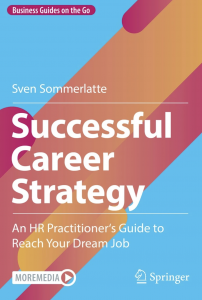Introduction
Those of you who have an aquarium know how sensitive fish are with regards to the water quality. Multiple factors must be considered including purity of the water, temperature, level of oxygen, etc. A fish might not survive very long in an environment where the water does not match its needs, which are different from one species to another.
 It is obviously an over-simplification to compare company culture with the water in a tank. Mainly because it is quite easy to measure the parameters of water quality, whereas it is highly complex to assess the culture of an organization. But what this comparison helps to illustrate is that you need the right environment to survive or to succeed. This is very often underestimated by candidates who change company. People tend to be focused on the job content, on the positioning of the job in the organization and on compensation.
It is obviously an over-simplification to compare company culture with the water in a tank. Mainly because it is quite easy to measure the parameters of water quality, whereas it is highly complex to assess the culture of an organization. But what this comparison helps to illustrate is that you need the right environment to survive or to succeed. This is very often underestimated by candidates who change company. People tend to be focused on the job content, on the positioning of the job in the organization and on compensation.
But we know from many examples – you might know some of those from your own observation or experience – that the cultural fit is a major factor of success in a new job as the example of Iris will show.
The example of Iris
Iris used to work in a highly successful large European consumer goods company as procurement manager and moved to the European headquarters of an American competitor. The European company was quite consensus oriented and quite hierarchical. Decisions were taken rather high up in the organization and usually in a collegial way. People did avoid direct confrontation and conflict.

To her great surprise, this was very different in the American organization, which was highly competitive. Iris quickly got the impression that everyone was fighting against the others. The principle was “survival of the fittest” and people were quite aggressive in their interactions. Employees got blamed publicly for low performance or failures, which would never have been done in her previous company.

Iris concluded after only a couple of months in that new environment that this was not her cup of tea. She felt increasingly miserable in the morning when leaving to the office. Instead of that collegial environment she was used to where people would chat over a coffee in the morning before moving to their daily work, everyone was quite isolated and fully focused on their own tasks. Something intangible but essential for her was missing in that new environment. She also found it very painful to witness the aggressive communication within the team and was under the fear that this would turn against her at some moment in time.
She knew that she would not be at her best in such a situation, whereas others were apparently quite comfortable with this very direct feedback culture. Iris decided to leave the organization.
What can we lean from this story?
Could that have been avoided? Was there a way how Iris could have found out before joining about that environment and about her personal preference? The answer is YES! I would recommend drawing the following lessons from this story:
- Try to be as clear as possible about your own preferences in terms of work environment. Do you prefer a cooperation-oriented working style or do you prefer a more performance-driven approach? Do you favor consensus or competition? What is your communication style? What type of relationship do you expect with your line manager? What relationships would you like to see within the team?
- I would recommend using the interview process to observe these aspects. You can also ask questions to understand these cultural aspects better.
- Please use social media such as Glassdoor to learn more about the organization and its culture.
- Finally, I would recommend reaching out to people who currently work in the company or to people who used to work there. Ask them these questions. You will see that people are usually happy to share their experience and information. If you don’t know people for that company personally, you may reach out to them through LinkedIn or other social media.
- Ensure that you do a thorough cultural due diligence before joining a company. Remember: The water quality in the fish tank really matters!

More information in my book:
Sven Sommerlatte : Successful Career Strategy – An HR Practitioner’s Guide to Reach Your Dream Job (Springer, June 2023). ISBN: 978-3-662-66790-3
